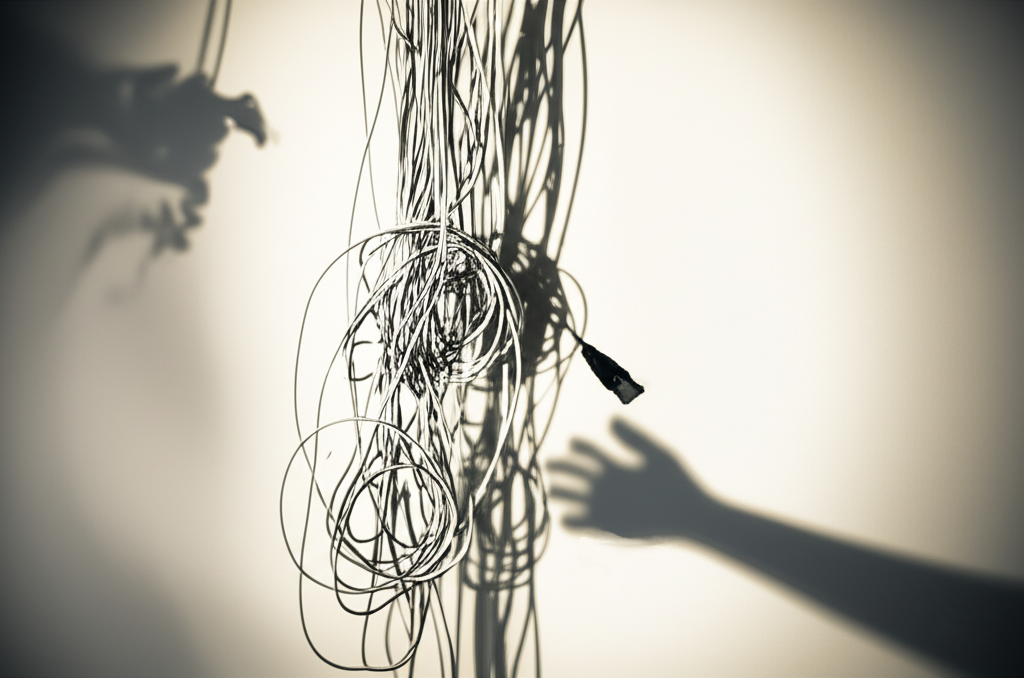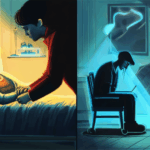I grew up the child of Baby Boomers. As such, I was introduced to a wealth and range of music starting from an early age. While my parents did have an eight track, that was before my time. Still, I listened to tunes on record players, tapes and the good, old fashioned radio. Our house and our car were rarely silent, and I rocked out to the sounds of Motown, the British Invasion, and pretty much everything in between. One of my favorite folk singers from this bygone era was Jim Croce, and my mom and I would sing one of his big hits, “(Operator), That’s Not the Way It Feels” together, harmonizing mournfully as he chronicled his woes in musical verse. While the 80s were past the era of operators needing to manually connect every phone call, it still wasn’t beyond comprehension for me how this came to be written or the world in which Jim Croce lived for this song to come into being. Years later, when I had my own kids, I had been singing it for so long that they grew up hearing it and didn’t question the lyrics; they just hummed along to the familiar tune and sang it without thinking about its genesis.
It’s been a long time since I heard the song in question, and longer since I actually thought about what Jim was saying. Some songs, movies or books are so familiar that while we absolutely understand the fundamental message, we have consumed them so many times that we skip over the gravity of it in daily life. This is particularly true of music and beloved hits that we become inundated with; the movie “Yesterday”, which was proposed that the Beatles never existed, brought this concept to the fore. In that movie, a man from the present day plays a few of the standards that we treasure but have become a bit inured to. As the plot goes, no one has ever heard them before and the reaction is … revolutionary. Hearing “Let It Be” for the first time would be a revelation, wouldn’t it? Can you imagine? The melody and the lyrics would be a completely eye opening and transformative experience. Too bad we can’t hear things with a fresh perspective more often.
Or can we? Take Jim Croce’s song, for example. A personal favorite, it had come up in a list of recommended songs recently, and I began singing it hesitantly after a gap of many years. I had even forgotten a word or two here and there, which surprised me. I began to listen, really listen, to the lyrics, and with it the underlying message. Jim was singing his heartache to the woman who connects the phone line in lieu of being able to talk to his love. She’s living in L.A./With my best old ex-friend Ray As the song goes on, it appears that he is so forlorn that he doesn’t even have a friend at all in the world, only this anonymous connection. There’s something in my eyes/You know it happens every time/I think about the love that I thought would save me
The song continues, and Jim tearfully thanks the operator for listening and hangs up, telling her that she can “keep the dime” even though the call was never connected. What’s remarkable about this exchange (beyond the evidence of phone calls only costing a dime at one point in living memory) is that it shows us proof of a disappearing facet of society. Technology has brought us wonders, but with its advent and spread, we have lost some avenues of human contact. The operator is just one of them. This is a great thing in many ways: it has brought efficiency and speed in areas that require them. In others, it has eliminated that humanity and connection. But this is just a song, you might say. No one was actually calling up the operator and using them for therapeutic purposes.
While strictly true, in just a generation, we have lost many point of contact with “real” people in our society. Jobs that were usually held by a living, breathing person have been eliminated or drastically downsized in favor of productivity or innovation. Everything from tellers to cashiers to the milkman to … any person you need to speak to on the phone for a business or a service call is usually held by a computer of some kind. In many ways, this can be a positive, but in others, it is a loss. For our younger generation, rates of social anxiety have skyrocketed.
According to NIMH, 9.1% of adolescents were diagnosed with an anxiety disorder in 2023, with 1.3% of those cases classified as “severe.” We are getting more and more isolated from each other as a society. While operators are sure to remain a relic of the past, it hasn’t been that long since Jim Croce could write a hit song about speaking to an anonymous human at the end of a line and feeling heard and understood, even if just for a brief moment when he needed it most. He wasn’t the only one; a quick Google search will turn up at least ten songs of a similar nature; I just chose Jim’s because he was the first and the dearest to my heart. This trend proves that the not-so-distant past was a much more connected and accepting time; try as we might, we are moving away from those things today. The remedy for loneliness and anxiety lies not in bringing back operators but in connecting with each other as authentically as possible. In his final stanza, Jim says: I only wish my words/Could just convince myself/That it just wasn’t real/But that’s not the way it feels Jim is saying something that rings true for us today: feelings are reality for many of us. Ignoring loneliness doesn’t make it go away. It has led to an epidemic, in fact.
Luckily, the answer is right there in the song: pick up the phone and call. Make a connection and talk—if not to an operator, then to a friend—today.



